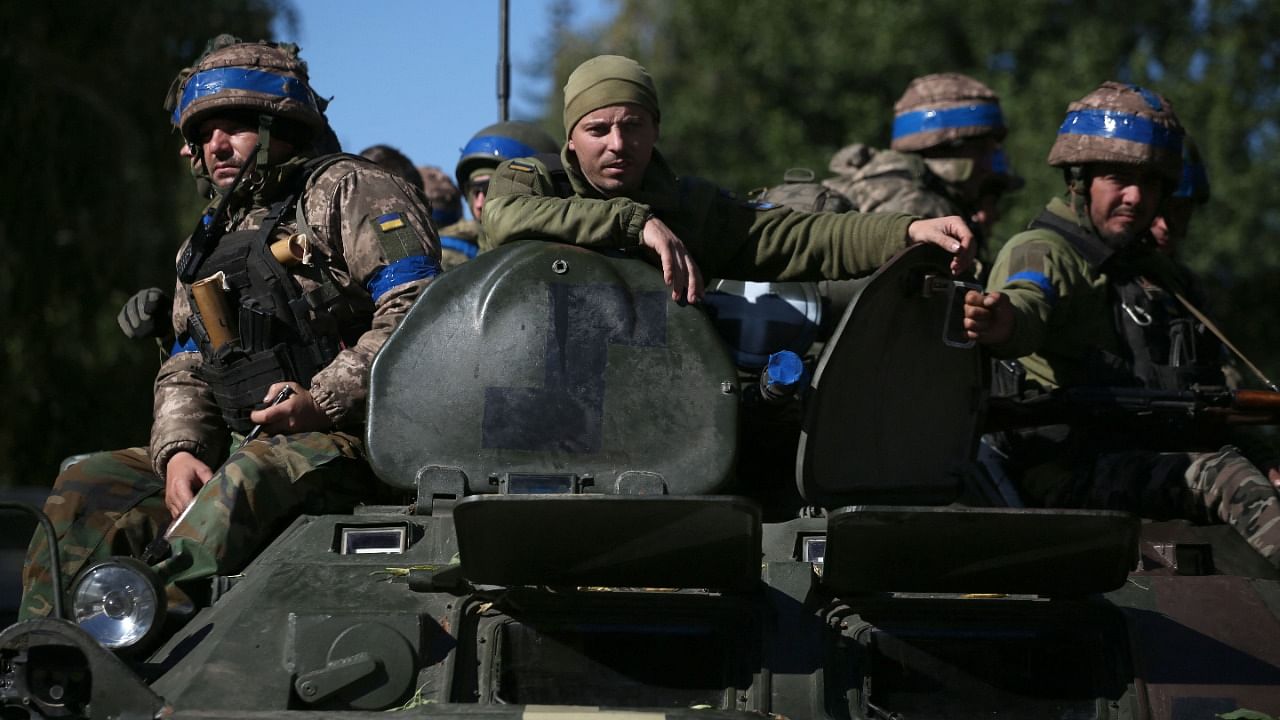
When Ukraine reclaimed territory covering some 3,700 square miles this month, it started a new phase of the conflict. After mostly defending for months, Ukraine is now dictating the war, choosing where it wants to press new offensives.
Russia has fallen back into a defensive position, trying to use the Oskil River as a barrier. But Ukrainians have already breached a few points along the river, and the area is “ripe for exploitation,” said George Barros, an analyst for the Institute for the Study of War.
Russia’s military is exhausted and understaffed, worn down by months of entrenched fighting and lacklustre recruiting. And it lost critical equipment when it retreated, as well as access to some supply lines from Russia, leaving towns near the front lines open to attack.
On Wednesday, President Vladimir Putin announced that Russia would call up roughly 300,000 additional soldiers. But even if it helps, the “partial mobilization” could take months to change the battlefield, giving Ukraine time to push forward.
For months, Russia had sent forces south from Izium in a failed attempt to encircle Ukrainian troops near Sloviansk. Now that Ukraine has recaptured Izium, Ukrainian forces are freed up to attack Russian forces to the east. “The tables have turned,” said Konrad Muzyka, a defense analyst at Rochan Consulting.
Ukraine faces its own obstacles. While its supply of fighters is more reliable, they, too, are exhausted and have faced heavy losses. Russian weapons and equipment remain more powerful, even after Western weaponry was sent to Ukraine.
Also Read | On Russia, China is in a tight spot
If Ukraine’s direct attacks get bogged down, it could try another strategy: cross the Oskil River and head east to intercept Russian supply lines to the area to try to force another retreat.
A Ukrainian counteroffensive in the south is making more gradual progress toward pushing back Russian troops — although Russia’s troops there are better trained and better prepared.
Now that Russia is on the defensive, the sheer size of the front line is a problem. Its current forces are too thin to cover everything. Repositioning troops between the northern and southern fronts to cover gaps would be much slower for Russia than it would be for Ukraine.
Ukraine’s continued progress is by no means assured.
There is no indication of a mass Russian withdrawal, and Russian forces have continued to assault Ukrainian positions and pound Ukrainian towns and villages. In areas where Ukraine has had the advantage, the Russian military may find a way to dig in, hold the front and wait for winter, when the ground freezes and advances are harder. After a period of faster maneuvering, the fighting could slow down and revert to a war of attrition, with Russia’s willingness to destroy populated areas with artillery pushing Ukraine back.
But the recent Ukrainian gains have reshaped the politics of the war as well as the battlefield. It now seems less likely that Western countries would withdraw military support for Ukraine, which has proved essential. Meanwhile, Putin is facing unusual criticism at home over the military’s recent losses — and concerns from Xi Jinping, the leader of China, which is Russia’s most powerful partner.
In this climate, Russia’s central issue — a lack of trained, motivated fighters — is not easily solved. Putin’s announcement Wednesday of a “partial mobilization” could help supplement Russian forces. But the quality of the new recruits is unclear, and it could take time to organize and deploy them, limiting the immediate effect on the battlefield.
Although it is still considered unlikely, it is now possible to imagine that continued Ukrainian successes could lead to the collapse of Russian morale and ability to fight, Muzyka, the Rochan Consulting analyst, wrote Monday.
“It is no longer science fiction to think that the war will end in a matter of weeks, months, and not years,” Muzyka wrote.